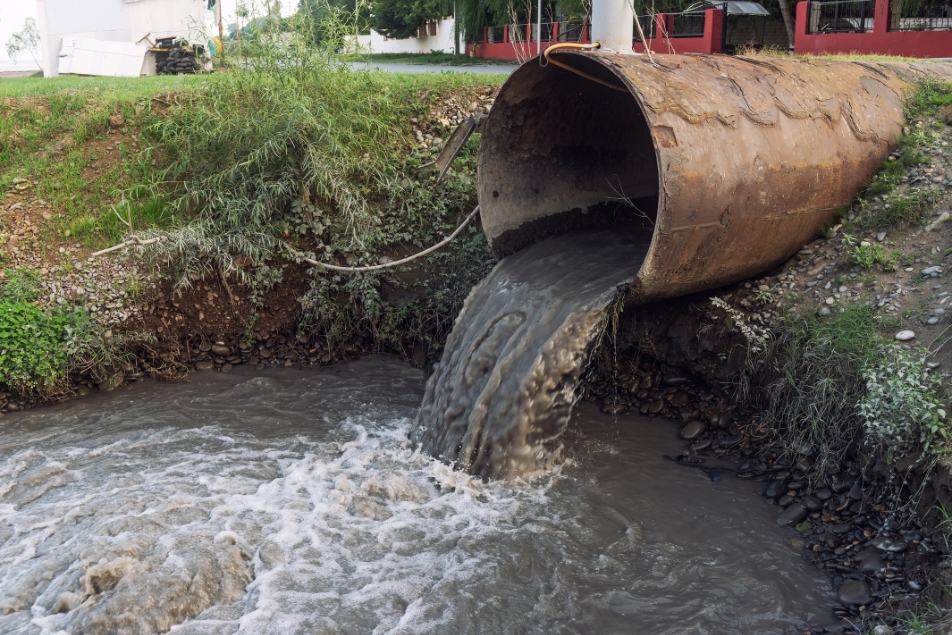In a landmark shake-up, Ofwat, DWI, EA and Natural England are being abolished to create one new governing entity.
23rd July 2025
"The underlying fact is we have not managed this well, and no one comes out of this with very much glory - not government, not the water companies and not the regulators."
This was the leader of the Independent Water Commission, Sir John Cunliffe’s, summary of the historic review of England and Wales’ water sector.
88 recommendations are included in an extensive 465-page report, published by the IWC, in an attempt to reform the “broken” water regulatory system. These will have a significant impact, not only for consumers, but for industry as well. But what are some of the report’s key points?
The water sector will experience a complete legislative reset, with Environment Secretary, Steve Reed, stating;
“The Government will abolish Ofwat. In the biggest overhaul of water regulation in a generation, we will bring water functions from four different regulators (Ofwat, Environment Agency, Natural England and the Drinking Water Inspectorate) into one.”
The hope is that one regulator, responsible for all aspects of the water sector, will restore faith and confidence for both the public and investors, avoiding mistakes made previously by a fragmented system.
In Wales, a new economic regulator will be established, but it is yet unknown whether this will be embedded in Natural Resources Wales (NRW) or a standalone entity. How ever this body is recognised, new legislation will be required, resulting in a longer lead-time of Welsh water regulations.
A public health taskforce (led by Welsh CMO) will also be formed to advise on safe recreational water use.
In these reforms, public health will also be integrated as a core objective within water legislation and the use of smart meters and water re-use policies will become mandatory, in an effort to reduce water demand.
A new national multi-sector* and systems-based** water strategy will be released every 5 years to correspond with the standard price review cycle.
These strategies will include Specific, Measurable, Achievable, Relevant, and Time-bound (SMART) targets, clearer trade-off frameworks, and a focus on sustainable long-term solutions for the sector rather than ineffective “quick fixes”.
*including agriculture, land-use, energy, transport and housing sectors.
**supply, wastewater and stormwater systems.
The overhaul will usher in new licence conditions and an executive accountability regime, which authorities hope will kick-start a culture change within the industry.
Stronger financial oversight and recovery plans will be mandated and planning obligations simplified, reducing a convoluted 9 overlapping plan system down to a much more straight-forward 2 (“Water Environment” and “Water Supply” plans).
Water companies will now also operate under a much more tailored “supervisory approach” regulatory model as opposed to the previous model of fixed benchmarking.
The report lays out its short-term priorities (2025-27) as the immediate transition of teams and frameworks, as well as the establishment of an implementation advisory group to guide these changes.
Reviews of existing planning frameworks and regulatory guidance will also take place, as well as reviews of the Water Framework Directive (WFD) and the Urban Waste Water Treatment (England and Wales) Regulations (UWWTR) for legislative updates.
We will also see the introduction of a mandatory water ombudsman service and a single national social tariff designed to combat water poverty.
From 2027-30, the legislative amendments made to WFD, UWWTR and public health objectives should be passed and operational.
Regulatory reforms should also be operational with supervisory functions embedded into new regulators, with asset mapping, forward-looking risk management, and reporting required by law.
We should also see the roll out of regional water authorities in England and a national system planner in Wales.
Beyond 2030, we should expect to experience the full transition to new regulators, and the nationwide adoption of compulsory smart metering, water reuse and resilience standards for infrastructure.
The report is also hopeful that, by this stage, the cultural shift in company accountability will be significant, enforced via licence reform and director liability.
This radical report’s recommendations of regulatory and legislative reforms, the modernisation of outdated laws, and the new focus on customer protection are seismic for the water sector.
Not only are we expecting to see a full reform in operation by 2030-32, but the early steps and transitions to achieve this are beginning immediately. Therefore, companies and regulators must start adapting to these changes now or risk being left behind.
At RVT Group, our in-house water treatment experts and technical consultants are always available to talk about your needs on site.
If you would like to find out more about how the water industry shake-up could affect your site, how RVT can support the water and sewage industries, or more about our water treatment solutions, call 0808 178 3286 or send an enquiry today.
Would you like to refresh your team’s knowledge of water treatment on site? Enquire about our free CPD-UK approved 1-hour presentation “An Introduction to Water Treatment on Site”.
Do you have a challenge on site? Enter your details below to get expert advice from a hazard control specialist.
We process your information in accordance with our Privacy Policy and Terms of Service.
A member of our expert team will contact you shortly to discuss your product requirements and solutions.